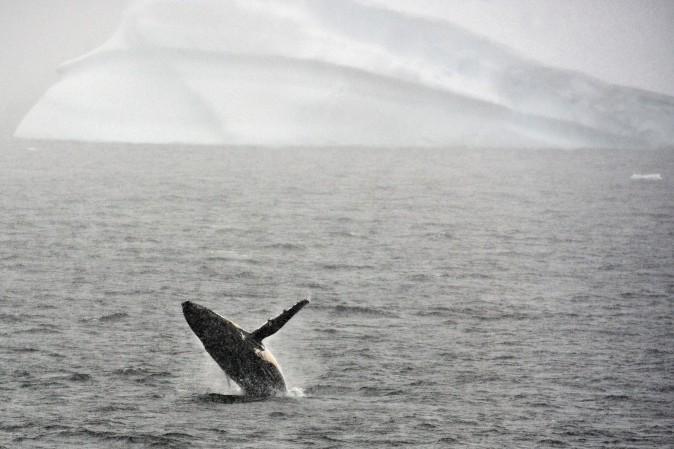A baby humpback whale died after becoming entangled in shark nets off Australia’s Gold Coast on Friday morning, according to Australian media.
Local beachgoers notified lifeguards of the mother and calf in distress after seeing fins flailing around a shark net buoy.
It took the Department of Fisheries and Seaworld rescue crews two hours to arrive at the scene, at which point they found the calf dead, although the mother was still alive.
“The juvenile calf was caught around the pectoral fin and the mother just around the head,” said a Queensland Department of Primary Industries responder in the Nine News report.
The mother was successfully cut free from the net by the rescue team.

A humpback whale jumps out of the water in the western Antarctic peninsula, on March 05, 2016 EITAN ABRAMOVICH/AFP/Getty Images




